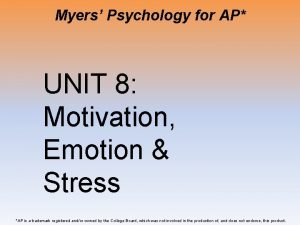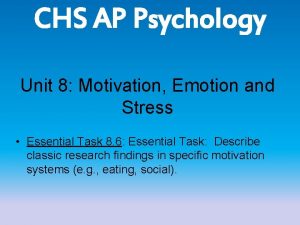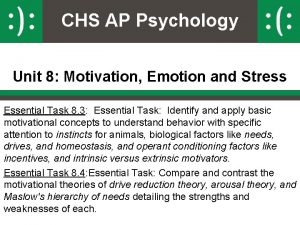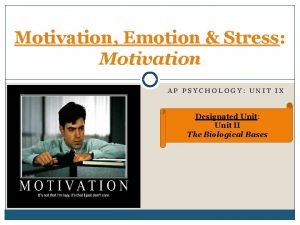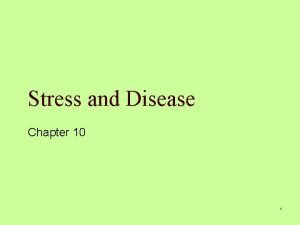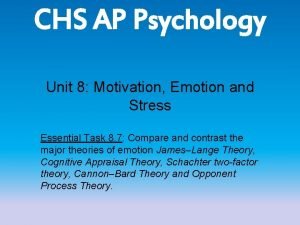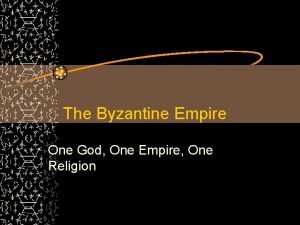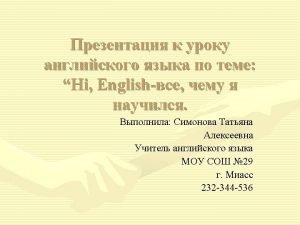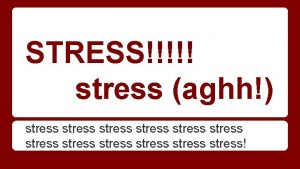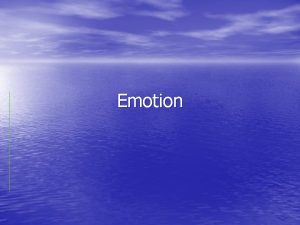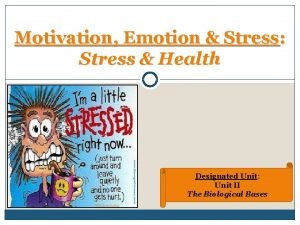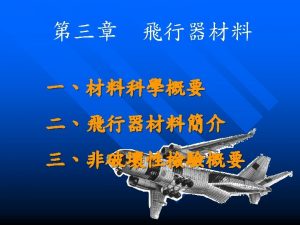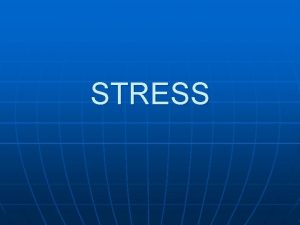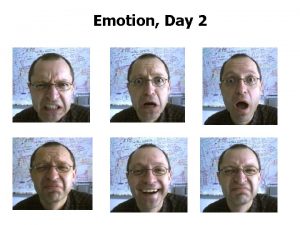Unit 8 Emotion Stress Emotion One of the










- Slides: 10

Unit 8: Emotion & Stress

Emotion • · One of the most powerful cognitive processes for humans is emotion • · Emotion is the combination of • o Physiological arousal • o Expressive behaviors • o Consciously experienced thoughts

• · Most all emotions are similar in feeling to humans, the differences lie in expression and explanation of causes • · There are three major theories on emotion: • o James-Lange theory: first we experience a physiological response to a situation, then comes our experienced emotion

• o Cannon-Bard theory: that both the physiological response to an event and our experienced emotion happen at the same time, and are separate. • o Two-factor theory: in order for one to experience emotion, two things happen, 1. must be physically aroused, 2. cognitively label the arousal

• · There are minor differences in physiological effects between different emotions, but they are subtle • · What is most important with emotion, is our cognitive processes and how we feel • · In some instances though, cognition does not always precede emotion

• · With emotion, different cultures have different expectations on expression • · Though, a fairly constant set of expressions that is crosscultural is facial expressions and being able to accurately read them

Stress • · Stress is the process in which we perceive and respond to stressors, that we evaluate as threatening to us • · There are often two reactions to a stressor: 1. this is a challenge or 2. this is a threat • · Two stress hormones our body releases are epinephrine and glucocorticoid hormones (e. g. : cortisol)

• · When we experience stress, researcher Hans Selye’s says it happens in three phases: • o Phase 1: Alarm reaction, from the activation of the sympathetic nervous system • o Phase 2: Resistance, body temperature, blood pressure, and respiration all remain high, with outpouring of hormones • o Phase 3: Exhaustion, vulnerable to illness, and in extreme cases, collapse and die • · His theory is called the General Adaptation Syndrome (GAS)

• · Stress can be onset for a number of reasons: catastrophes, significant life changes, and even daily hassles • · Stress can also be onset by personality, Type A personalities are much more prone to experiencing stress than Type B personalities

• · Stress can be damaging to both physiological and psychological aspects of people. • · With high stress: • o People are more prone to heart attacks/heart disease • o Have a higher susceptibility to disease • o Usually decline faster during diseases like cancer or HIV • o Affects people’s psychology and thinking processes, which in turn affects their behavior, (Remember: everything psychological is simultaneously biological!)
 Bulimia nervosa definition ap psychology
Bulimia nervosa definition ap psychology Unit 8 motivation emotion and stress
Unit 8 motivation emotion and stress Instinct ap psych definition
Instinct ap psych definition Yerkes dodson law ap psychology example
Yerkes dodson law ap psychology example True stress and engineering stress
True stress and engineering stress Normal stress definition
Normal stress definition Chapter 10 stress responses and stress management
Chapter 10 stress responses and stress management Two factor theory psychology
Two factor theory psychology What motivates you
What motivates you One god one empire one emperor
One god one empire one emperor One one one little dogs run
One one one little dogs run
